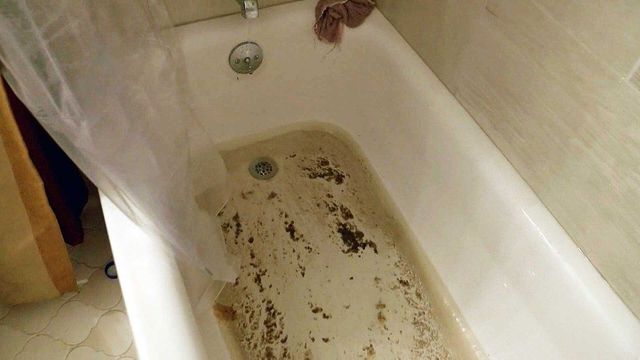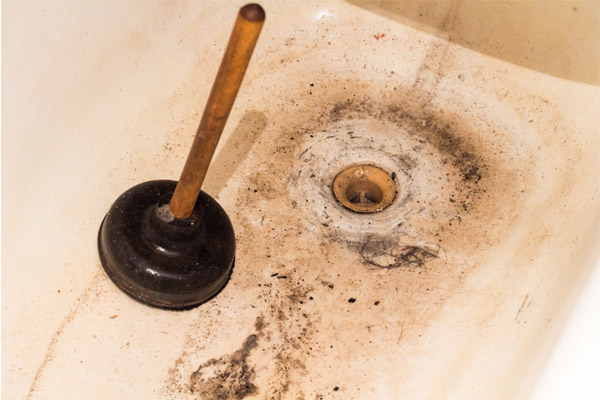Significant Factors Behind Effluent in the Bathtub
Significant Factors Behind Effluent in the Bathtub
Blog Article
The author is making a few good pointers relating to What To Do If Sewage Starts Backing Up Into the Shower overall in this great article down below.

Sewage back-up in the bathtub can be a traumatic and unhygienic issue for any type of home owner. Not just is it troublesome, but it additionally postures significant health and wellness risks and shows underlying concerns with the plumbing system. Understanding why sewage is turning up with the tub is vital for taking suitable action to resolve the trouble efficiently.
Intro to the Issue
Typical Reasons for Sewage Backup
Blockages in the Sewage System Line
One of the most usual causes of sewer back-up is a blockage in the sewage system line. This can take place as a result of the buildup of debris, grease, or foreign things in the pipes, avoiding correct flow and creating sewage to back up right into your tub.
Tree Origin Intrusion
Tree origins seeking wetness and nutrients can infiltrate sewage system lines via little splits or joints. Over time, these roots can expand and increase, causing considerable damage to the pipelines and resulting in sewer backup concerns.
Recognizing the Issue
When sewer draws back up right into the tub, it's a clear sign of an issue with the water drainage system. The wastewater that should be streaming away from your home is rather finding its way back into your space, which can bring about substantial damage and carcinogen.
Potential Causes
Numerous aspects can contribute to sewage back-up in the bathtub. From obstructions in the drain line to problems with the plumbing infrastructure, determining the source is crucial for locating a remedy.
Aging Facilities
Older homes might have dated plumbing systems that are much more susceptible to deterioration, cracks, and wear and tear. As pipes age, they end up being much more susceptible to leakages and blockages, increasing the chance of sewage backup incidents.
Heavy Rainfall or Flooding
During periods of heavy rainfall or flooding, the drain system may become overwhelmed with excess water, triggering backups and overflows. This can lead to sewage supporting right into bath tubs and other fixtures inside the home.
Indicators of Sewage Backup
Foul Odors
Unpleasant odors emanating from drains pipes or components, especially in the shower room, might suggest sewage backup issues. These odors are often strong and consistent, signaling an issue that needs prompt focus.
Slow Draining Fixtures
Tubs, sinks, and bathrooms that drain slowly or not in any way could be experiencing sewer back-up. If multiple fixtures are influenced concurrently, it's most likely that the problem originates from a typical point, such as the main sewage system line.
Gurgling Sounds
Odd gurgling or gurgling noises originating from drains pipes when water is running elsewhere in the house are a sign of air trapped in the plumbing system. This air build-up can result from sewage back-up and need to be examined immediately.
Wellness Risks Associated with Sewage Backup
Contamination of Water Supply
Sewage back-up can pollute the water system in your home, posturing a severe health threat to you and your family members. Direct exposure to infected water can cause gastrointestinal concerns, skin infections, and other health problems.
Mold and mildew Development
Moisture from sewer backup can create perfect conditions for mold growth in your house. Mold and mildew spores can exacerbate breathing problems and create allergic reactions in sensitive people, making punctual cleanup vital.
Spread of Condition
Sewage contains damaging microorganisms, viruses, and parasites that can trigger a variety of conditions, consisting of liver disease, cholera, and gastroenteritis. Coming into contact with sewer or polluted surfaces puts you in jeopardy of infection.
Tidying up After Sewer Back-up
Sanitation Procedures
Thoroughly sanitize and sterilize influenced locations after sewer backup to remove damaging bacteria and avoid mold development. Usage suitable cleaning items and safety equipment to make certain risk-free and reliable cleanup.
Reconstruction of Impacted Areas
Fix any kind of damage to flooring, wall surfaces, or components brought on by sewer backup. Depending on the degree of the damage, you may require to change carpeting, drywall, or other materials to restore your home to its pre-loss condition.
Immediate Actions to Take
Turning Off Supply Of Water
In the event of sewer back-up, it's necessary to switch off the water supply to avoid additional contamination and damages. Locate the primary water shutoff valve in your house and shut it off till the issue can be settled.
Contacting a Professional Plumber
Managing sewer back-up is not a do it yourself job. Call a qualified plumber with experience in handling sewage-related concerns to analyze the circumstance and execute required repairs or clean-ups.
Avoiding Contact with Contaminated Water
Up until the sewer back-up is fixed, prevent contact with infected water to prevent the spread of bacteria and virus. Put on safety gear if you have to be in the afflicted location and wash your hands extensively afterward.
Safety nets
Regular Upkeep of Sewer Lines
Set up routine examinations and maintenance of your drain lines to determine and deal with potential problems before they escalate right into major problems. This can consist of clearing out debris, examining for tree root invasion, and fixing any type of damaged pipes.
Mounting Bayou Shutoffs
Take into consideration installing backwater valves in your plumbing system to stop sewage from flowing back into your home during durations of heavy rainfall or flooding. These valves instantly close when water draws back up, shielding your building from contamination.
Proper Disposal of Household Waste
Prevent purging anything aside from bathroom tissue and human waste down the bathroom to prevent clogs and clogs in the sewer line. Dispose of oil, oil, and other household chemicals appropriately to minimize the threat of plumbing troubles.
Why Is Water Backing Up in My Bathtub When I Flush My Toilet?
What to do about a sewer line clog
First, don’t bother with plunging. No amount of plunging will dislodge the clog in a sewer line. The clog is too far away. Plungers are for clogs in the toilet itself, not the sewer line. Plus, the most likely causes of a sewer clog are:
Tree roots Flushed toys or feminine products Grease buildup Those items don’t move easily. And in the case of tree roots, the roots need to be cut out of the pipe and the pipe will need to be repaired.
You’ll need a closet auger. A closet auger is a type of plumber’s snake with a protective cover to keep from scratching the delicate porcelain toilet. If the clog is further down, you may need to remove the toilet or use one of your cleanouts to get to the clog.
We also recommend doing a video inspection of the drain to ensure that the cause of the clog has been completely removed. Otherwise, you could have the same problem again in a few days or weeks.
https://mspplumbingheatingair.com/blog/why-is-water-backing-up-in-my-bathtub-when-i-flush-my-toilet

I am very interested by and I really hope you enjoyed my blog post. Do you know somebody else who is curious about the niche? Feel free to promote it. Many thanks for taking the time to read it.
View
Report this page